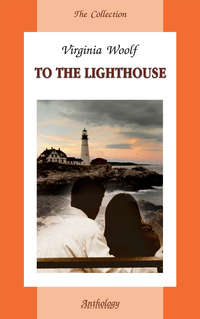To the Lighthouse / На маяк

Добавить В библиотекуАвторизуйтесь, чтобы добавить
Добавить отзывДобавить цитату
To the Lighthouse / На маяк
Вы ознакомились с фрагментом книги.
Для бесплатного чтения открыта только часть текста.
Приобретайте полный текст книги у нашего партнера:
Всего 9 форматов
Авторизация